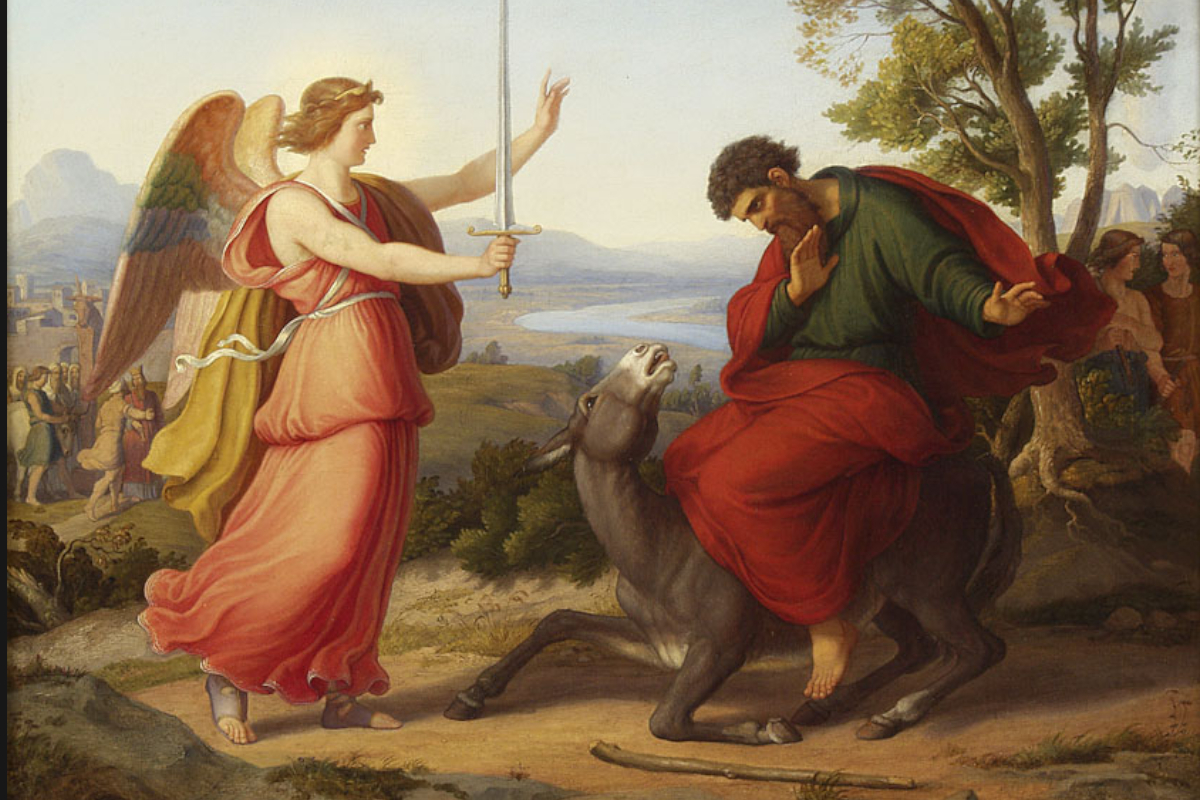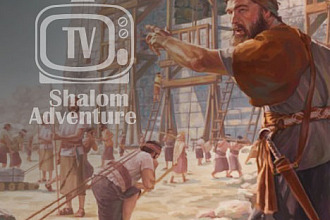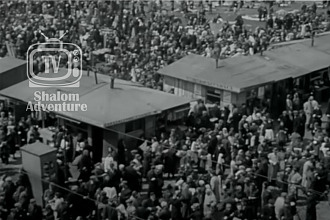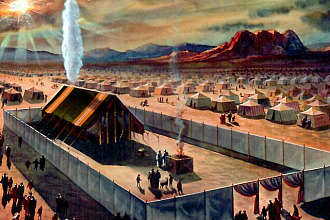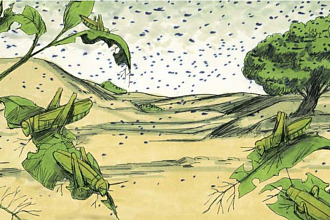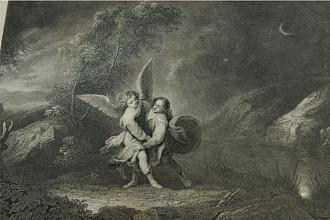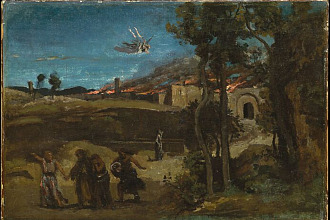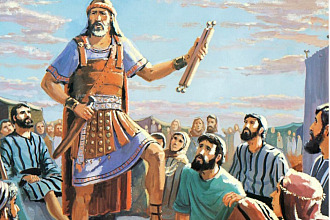Parasha for the Week: Balak Numbers 22: 2 - 25:9
Haftarah for the Week: Micah 5:6 - 6:8
Apostolic Writings: Romans 11
Overview:
Balak, king of Moav, is in fear of Bnei Yisrael. He summons a renowned sorcerer named Bilaam to curse them. First, G-d speaks to Bilaam and forbids him to go. But, because Bilaam is so insistent, G-d appears to him a second time and permits him to go.
While en route, a malach (emissary from G-d) blocks Bilaam’s donkey’s path. Unable to contain his frustration, Bilaam strikes the donkey each time it stops or tries to detour.
Miraculously, the donkey speaks, asking Bilaam why he is hitting her. The malach instructs Bilaam regarding what he is permitted to say and what he is forbidden to say regarding the Jewish People.
When Bilaam arrives, King Balak makes elaborate preparations, hoping that Bilaam will succeed in the curse. Three times Bilaam attempts to curse and three times blessings issue instead.
Balak, seeing that Bilaam has failed, sends him home in disgrace.
Bnei Yisrael begin sinning with the Moabite women and worshipping the Moabite idols, and they are punished with a plague.
One of the Jewish leaders brazenly brings a Midianite princess into his tent, in full view of Moshe and the people.
Pinchas, a grandson of Aharon, grabs a spear and kills both evildoers. This halts the plague, but not before 24,000 have died.
"Bilaam, A Weapon in the Hand of Balak"
The people Israel, under the leadership of Moshe, have fought a number of wars against their enemies—Amalek, The Amorites, the Canaanites, the king of Bashan, etc. — and emerged victorious in all of these physical encounters. The king of Moab, Balak, afraid to confront Israel directly again in open battle, devises a new strategy to destroy Israel. He hires a media expert, Bilaam, to conduct a public relations campaign against the right of the people of Israel to exist. He reasons that though they may not be defeated in war, they can be cursed in the eyes of the world.
Balak is convinced that, if he cannot conquer and destroy the people of Israel by direct aggression, he will now be able to do so through sins. Balak knows that he cannot do anything against Israel, which is why he uses Bilaam as weapon against Moshe and his people.
"The Gift of Prophecy"
This parasha invites us to think about the biblical phenomenon of prophecy. The Bible introduces him as a man who had a relationship with G-d. He is never called a prophet, but G-d spoke to him, as two friends speak together. “And G-d came to Bilaam and said, “Who are these men with you?” (Numbers 22:9). We know that G-d has a people outside of His visible and physical people. They are faithful believers (Adam, Seth, Enoch, Methuselah, Noa, Shem, and others). Melchizedek and Jethro were priests of the most high, Melchizedek in the city of Salem (Jerusalem), Jethro in Madian. In this parasha we read about Bilaam who seems to be a recognized intermediate between G-d and men and to whom G-d spoke.
Maybe G-d spoke directly to Bilaam at a certain moment of his life, that is why Bilaam could have been a man of G-d. Maimonides confirms: “Prophecy can only be received by one who is extremely wise and learned, has mastered proper character traits, and battles and defeats his evil inclination constantly.” Thus, the Jewish tradition has a very positive view of Bilaam, who regards him as a Gentile prophet. He was “super-righteous”, holy, kind, and G-dly. He would analyze and criticize his own actions and continually work to grow spiritually. However, Rabbi Baruch Leff says that once Bilaam became a prophet, he was spiritually destroyed. He was not able to handle the powerful experience of prophecy, and it was at this point that he came to be the wicked Bilaam that we know.
Prophecy is not an artificial, superficial magic trick. It was only because Abraham was as great as he was, and he passed on his spiritual greatness to Isaac, who transmitted it to Jacob, and so on, that the people of Israel got great prophets as leaders. Bilaam was unable to handle prophecy because he had no nation backing him that was deserving of receiving it. According to the Jewish tradition, only the people of Israel had a history as rich and as holy as it has, firmly rooted in the Patriarchs and could receive the gift of prophecy.
When a spiritual gift as the gift of prophecy is given to a person and he can-not handle or maintain will corrupt him, making him into an evil person such as Bilaam.
"A People Beside of All"
Bilaam says in his prophecy inspired by G-d, “How beautiful are your tents, O Jacob, your dwelling places, O Israel! (Numbers 24:5). It is a text which is recited by the people of Israel every week. In Hebrew this text contains the following words, Ma-Tovu Ohalecha Yaakov Mishkenotecha Israel. Most of the Christian scholars have a very different vision of the people of Israel. They remind the bad side of Israel, being a rebellious people, who was not faithful to G-d and finally was rejected by G-d and replaced by the church.
It is not the vision of G-d upon his people. Even if G-d’s people is not obedient every day, the Torah says “How can I curse those whom G-d has not cursed? How can I denounce those whom the L-rd has not denounced?” (23:8). How can we curse Israel? How can we take the risk to denounce Israel and to be against the word of G-d?
The Torah continues saying “I see a people who live apart and do not consider themselves one of the nations.” (23:9). Israel has always been a people apart of all the nations. They have always been aware of their mission in this world. It is because they are apart of all the nations that they have raised opposition against them.
It is a great lesson for us, most of the time we don’t like to be a people apart of all the nations, but this is really the vocation of G-d’s people, Yeshua said to us, “My prayer is not that you take them out of the world but that you protect them from the evil one. They are not of the world, even as I am not of it. As you sent me into the world, I have sent them into the world. (John 17:15, 16, 18) Yeshua sent us into the world but we are not of the world, the people of G-d has to be apart of the world. It is important that the world see a difference between G-d’s people and the world. If we are exactly as the world is, there is no reason to be a believer, Of course it is not easy to be apart, to be different, Israel has paid the price of her difference by a lot of persecution during 4,000 years, but maybe we are not ready to suffer for the glory of the name of G-d.
Haftarah: Micah 5:6 - 6:8
The Parasha is about Balak who called Bilaam to curse Israel. “Now Balak son of Zippor saw all that Israel had done to the Amorites. … He sent messengers to Bilaam son of Beor at Pethor, which is on the Euphrates, in the land of Amaw, to summon him, saying, “A people has come out of Egypt; they have spread over the face of the earth, and they have settled next to me. Come now, curse this people for me, ” (Num. 22:2-6).
The haftara reminds us the story of Balak and Bilaam “O my people, remember now what King Balak of Moab devised, what Bilaam son of Beor answered him” (Mic. 6:5).
The parasha gives us one of the most beautiful poem about Israel “Ma Tovu”. “How fair are your tents, O Jacob, Your dwellings, O Israel! Like palm-groves that stretch out, Like gardens beside a river, Like aloes planted by the L-rd, Like cedars beside the water; Their boughs drip with moisture, Their roots have abundant water. … ” (Num. 24:6). The Poem of Micah 6 in an appeal to repentance, a call to come back to G-d. “Hear what the L-RD says: Rise, plead your case before the mountains, and let the hills hear your voice. Hear, you mountains, the controversy of the L-RD, and you enduring foundations of the earth; for the L-RD has a controversy with his people, and he will contend with Israel. (Mic 6:1-2) the L-rd is ready to listen to Israel, he asks them to plead with him, the L-rd has a reproach to present to Israel. He reminds them what he has done for them, “O my people, what have I done to you? In what have I wearied you? Answer me! For I brought you up from the land of Egypt, and redeemed you from the house of slavery; and I sent before you Moses, Aaron, and Miriam.” (Mic 6:3,4). The prophet speaks on behalf of Israel and says: “With what shall I come before the L-rd, and bow myself before G-d on high? Shall I come before him with burnt offerings, with calves a year old? (Mic. 6:6). What can we do, to please the L-rd? the answer comes from above. “He has told you, O mortal, what is good; and what does the L-rd require of you but to do justice, and to love kindness, and to walk humbly with your G-d?” (Mic 6:8). G-d is always the same, he wants from us Justice, Love, Kindness and to walk humbly.
Apostolic Writings: Romans 11
The parasha for this week is about the story of Balak inviting Bilaam to help him to curse Israel. The reasoning of Balak was simple, he heard about the great G-d of Israel, all the miracle G-d has perform for Israel and her blessings. Thus, in Balak’s mind, the only way to eliminate Israel is to separate this people from their G-d and his blessings, It was a very pagan view of G-d, they had no clue about the unconditional love of G-d, he had the very simple view, you are blessed or cursed without considering any love of G-d. Then in order to win against Israel, they should be cursed. Bilaam was a famous prophet among the nations, according to the Jewish tradition, he was one of the advisors to pharaoh, when Moses negotiated the departure of Israel from Egypt, that is why he knew who were Israel. In the narration, he was reluctant to come, he already saw G-d’s blessings upon Israel, but was attracted by some good incomes and benefits, Then he went, even though G-d said to him, don’t go.
Israel is the people of G-d, there is no way to curse this people. G-d already said to Abraham: “I will bless those who bless you, and whoever curses you I will curse; and all peoples on earth will be blessed through you.” (Genesis 12:3). And never G-d will remove his covenant with his people, “For the mountains may depart and the hills be removed, but my steadfast love shall not depart from you, and my covenant of peace shall not be removed,” says the L-rd, who has compassion on you.” (Isaiah 54:10). G-d will never abandon them or reject them: “Thus says the L-rd, who gives the sun for light by day and the fixed order of the moon and the stars for light by night, who stirs up the sea so that its waves roar— the L-rd of hosts is his name: 'If this fixed order departs from before me, declares the L-rd, then shall the offspring of Israel cease from being a nation before me forever'.” (Jeremiah 31:35ذ36), even more: “Thus says the L-rd: 'If the heavens above can be measured, and the foundations of the earth below can be explored, then I will cast off all the offspring of Israel for all that they have done, declares the L-rd'.” (Jeremiah 31:37). That is was when Rabbi Shaul ask a question about the existence and rejection of Israel he said, “I ask, then, has G-d rejected his people? By no means! For I myself am an Israelite, a descendant of Abraham, a member of the tribe of Benjamin. G-d has not rejected his people whom he foreknew.” (Romans 11:1-2).
That is why we can affirm denying the existence of Israel, or spiritualizing Israel as the "Church" or "Islam"Ñ "replacement theology" is not only preached by the Christian Church, but also very much by IslamÑ or any other identity, which is not the physical Israel is a way to try to curse Israel. All tentatives of replacement theology are new ways to curse Israel. Thus, It is crucial today not to be on the side of the modern Balaks and Bilaams who would like to curse Israel in order to get all the blessings of Israel upon themselves, this will not work. All our arguments on Spiritual Israel are only reasoning and not scriptural, that is why believing in replacement theology is taking the risk to be on the side of the enemy of G-d. “And the Almighty said to Bilaam, ‘do not go with them. Do not curse the nation for they are blessed’.” (Numbers 22:12). They also are a Blessed nation in the Apostolic Writings as Paul says: “But as regards election, they are beloved for the sake of their forefathers. For the gifts and the calling of G-d are irrevocable.” (Romans 11:28bذ29), even though they are enemies of the gospel (28a) they are loved and blessed. The blessings of G-d and His love for His people are gifts. Of course, nobody deserves G-d’s blessings, even Israel, all is by grace, and these gifts as many others is irrevocable.
What a wonderful G-d we have, He is faithful in spite of our unfaithfulness. He is not a man to change His mind every morning, but a G-d who keeps His promises for all generations.
As it is said in the commentary of this parasha, one of Bilaam’s blessings to Israel is: “He hath not beheld iniquity in Jacob; Neither hath he seen perverseness in Israel: Jehovah his G-d is with him, And the shout of a king is among them.” (Numbers 23:21 ASV). Israel was not without sin, all the narrations we have before this story of Balak and Bilaam are full of sins and rebellions of Israel, rebellions against Moshe and rebellions against G-d. But G-d has His eyes on Israel, because of His grace, and His merciful character He does not see any sin in Israel. Let me here give the same assurance to the Church, it is not because we recognize G-d's love for Israel that we deny this same love for the Church. G-d's love for Israel, is a prove of G-d's love for His church in spite of her sin.

